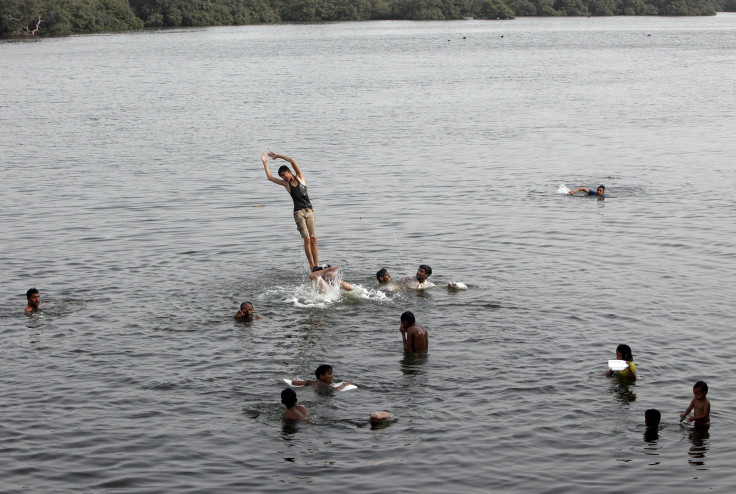Karachi Heat Wave: Over 1,000 Dead As Morgues Fill Up

The worst heat wave in Pakistan in over 35 years has taken more than 1,000 lives in the southern city of Karachi, the Edhi Foundation said on Thursday, with morgues and hospitals running out of space. In the midst of the holy month of Ramadan, Muslims are not supposed to eat or drink during daylight, aggravating the health effects of the heat wave, as some citizens avoid hydration.
Critical cuts in Karachi's electricity have left many without fans, clean water and light, Reuters reports. The city of 20 million has had temperatures near 110 degrees Fahrenheit for the past five days, before dropping slightly on Thursday, according to Al Jazeera.
"I felt so hot, I was vomiting," an elderly man told CNN. "I felt weak and my heart sank."
At the Edhi Morgue, the largest operating in Karachi, bodies are stacked on top of each other with several outside, and a handwritten note on the door says that the morgue is filled to capacity, CNN reports.
"We pay tributes to the doctors and staff of the government hospitals who are working tirelessly treating an endless number of patients," said Anwar Kazmi, a senior official at the Edhi Foundation, a Pakistani charity providing public medical care, Reuters reports.
"The refrigeration unit was not working properly because there were too many bodies," he said of the morgue.
The military has been a major provider of healthcare to citizens of Karachi during the heat wave, after Pakistan's National Disaster Management Authority deployed troops to the city.
"They have set up 29 heatstroke centres across the province. They have been distributing around 77 tonnes of mineral water," Major General Asghar Nawaz said to Al Jazeera on Thursday.
Some shops in the city will not sell ice or water during the day because of Ramadan and laws that could allow them to be fined, reports Reuters. It's also illegal to eat or drink in public from dawn to dusk, although the rules have not been enforced and clerics have encouraged people to drink.
© Copyright IBTimes 2025. All rights reserved.






















